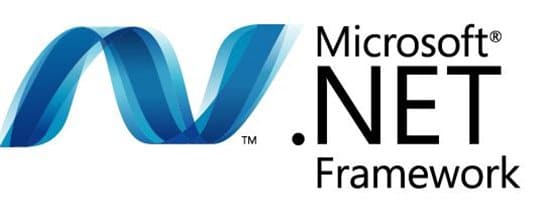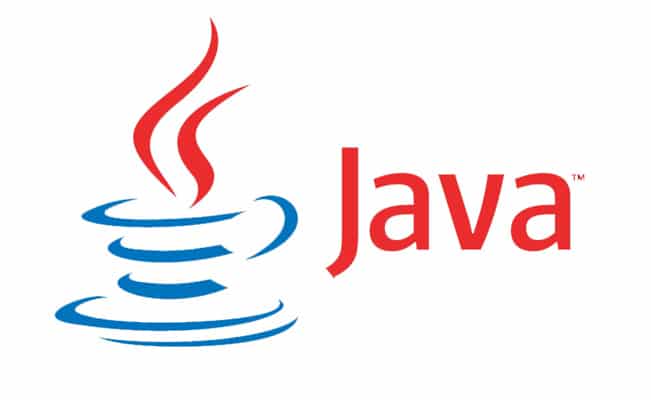

Java vs .NET: How to choose the right technology for enterprise software development?
Very often, Java and .NET appear under comparison. Moreover, many specs tend to view them as mutually interchangeable techs disregarding the fact that Java is a programming language while .NET is in many ways a framework. Let’s compare Java vs NET.
How legitimate is such a view? And what is the critical difference between the two technologies? We are going to finalize the issue of the comparison between Java and .NET by the present post. We believe that our conclusions can help select the right technology for your project, especially when it comes to the development of enterprise-scale software solutions.
Do you need enterprise software development services? Check out what we offer.
- Mobile app development for enterprise
- Web development for enterprises
- Enterprise software development
.NET

In the late 1990s, Microsoft developed what they initially named NGWS (Next Generation Windows Services). That was .NET. But the first official version of .NET 1.0 appeared in the late 2000s.
It is necessary to distinguish between .NET Framework and .NET Core. The latter seems to be, probably, what .NET Framework should be from the very beginning. Anyhow, when we talk about .NET, we mean just .NET Framework to avoid any confusion.
.NET is a software environment created by Microsoft to work mainly with Microsoft Windows operating system. The framework’s basic class library simplifies many things to do:
- Working with a user interface
- Accessing data
- Connecting to databases
- Doing cryptography
- Developing web applications
- Working with algorithms
- Networking, etc.
.NET includes hardware environment CLR (Common Language Runtime) working as a virtual machine. Dot NET Framework provides interoperability for several programming languages. The .NET developers create software by combining their source code with the ones available in the framework library.
The difficulty curve of .NET is not so strong to which various extensive promotions and guides from Microsoft have been regularly contributing. The very ecosystem of .NET brings certain benefits to developers: there is no need to puzzle over what libraries to choose since everything has been settled out. Looking for web development? Choose ASP.NET. As if Microsoft says: “We are sort of a big company. If it suits us, why don’t you come along?”
.NET supports C#, which is considered as an improved Java by many developers. The language delivers an easy model of asynchronous programming along with LINQ, which, in addition, can be extended with other providers (LINQ to SQL, LINQ to XML, etc.).
.NET Framework is a proprietary platform, but due to the proper management of Microsoft, it is not a shortcoming anymore. This issue is worth a few lines to clarify what we mean. The thing is that Java has become popular in due time just because of its open-source orientation. The business has never been scared of guys from Oracle and Sun who could come and make the rules. The proprietary nature of .NET stopped bothering developers when Microsoft CEO Satya Nadella declared for all to hear that “Microsoft loves Linux.”
And this is more about .NET Core, which appeared to be the work on errors for MS. A full-and-fair competitor of Java is what .NET Core can be considered. The language, along with its instrumentation, is available at GitHub under the MIT license. What has been added since the release of .NET Core?
- Support for OS Linux and macOS
- Improved parameters to work in containerization environments
- Active evolution of Xamarin when developers have got opportunities to write fast apps for iOS and Android
- Opportunities for the IoT development
- WPF (the UI framework for desktop apps) that has become an open-source project promising to be cross-platform one day
- Web development has improved due to Blazor (an open-source web platform to build apps with C# and HTML)
Java

The most critical argument in the comparison of the two technologies is the age of both. Sustainability comes from maturity in many ways. Under the factors of Java’s sustainability we mean the standards accepted by the community, the number of highly-skilled developers, and the number of large vendors using Java. They all are strong and large in Java. Besides, Java is “Write Once Run Anywhere.” But first things first.
In 1991, James Gosling, Mike Sheridan, and Patrick Naughton started working on the Java programming language, referred to as “The Green Project.” The goal was to create something beyond the options of C++ and compatible with the environments of Sun Microsystems. Even though the language was originally intended for computers only, the emerging digital convergence of computers, telephones, play stations, and TV sets made the developers reconsider the concept to create a multi-platform language.
For the first time, it was introduced in 1992 under the name of “Oak.” In 1995, Sun Microsystems publicly released the first version of Java 1.0, while Oracle provided it with an open-source platform with JDK (Java Development Kit). Later on, Sun has conducted re-licensing of all Java technologies under the famous public GNU license.
The motto of Java is WORA (Write Once Run Anywhere) which means that code executable on one platform needs no re-compiling on any other one. Five main principles are laying in the background of Java:
- Simple and object-oriented
- Secure and reliable
- Architecture-agnostic and portable
- Interpreted, multi-threaded, and dynamic
- It provides high productivity
Java has a huge community of developers and supporters. They continuously generate a lot of publications explaining how to fix various problems that a developer may face. Java is about the backward compatibility that can untie the hands of developers who create cross-platform applications. Even though many developers agree that Java is barely a laconic language, Java’s difficulty curve is not so strong, especially when you come to Java after dot NET.
Need to build an enterprise app? Learn more about enterprise mobile application development.
Java vs NET: Key differences between the technologies
It is worth indicating the differences in a property-by-property sequence to better understand the advantages and shortcomings of both technologies.
- Origin. Java is developed by Sun Microsystems, while .NET originates from Microsoft;
- Type. Java is a platform-agnostic object-oriented programming language that supports multiple third-party operating systems. .NET is an open-source framework that supports only Windows operating system even being declared as a cross-platform toolset.
- Code execution. Java requires JVM (Java Virtual Machine), .NET needs CLR (Common Language Runtime).
- Compilation. Some intermediate code appears after compilation in both cases (bytecode for Java and MSLI code in dot NET), which is then processed by an execution environment. JIT (just-in-time) compilation of source code/bytecode to machine code happens at the class level in Java, and at the method level in .NET.
- Development environment. Multiple third-party IDEs (Integrated Development Environment) such as Eclipse, NetBeans, IntelliJ IDEA can be used for Java while only standard Microsoft Visual Studio works with .NET.
- Supported languages. Java code is portable and can be executed in any operating system via JVM. Such languages as Python and Ruby are supported. .NET supports various Windows-oriented web services where C#, C++, and Visual Basic can work.
- Popularity. Both the relative maturity and multi-platform capabilities make Java a little more popular among developers in comparison with dot NET. At the same time, the latest efforts of Microsoft in the popularization of dot NET-related tools keep bringing developers to its ecosystem.
Advantages of .NET
.NET tends to object-oriented development, which is famous for using less code wherever possible. Reusable code along with reusable components is what allows developers to spend much less time on app development. Shorter development life cycles imply cheaper software as a result.
.NET supports modular design that contributes to simpler deployments. The same relates to debugging and maintenance: it is possible to disassemble an application, fix it part by part, and reassemble it again. This is an effort-saving approach when the entire code needs no checking to find the line with errors.
Even though .NET is not initially created for cross-platform development, the farsighted policy of Microsoft management, along with the personal efforts of Satya Nadella, have paid off in this regard. Especially it relates to .NET Core.
The automatic monitoring feature provided by ASP.NET notifies developers about anything going wrong along the coding process. Hence, the development is getting easier, whether it comes to memory leaks or any other coding issue.
Microsoft Development Network provides developers with advanced horizontal scalability within development environments through numerous available tools when almost nothing is worth searching outside the informed Microsoft platform.
The very availability of the .NET ecosystem is a big advantage in itself: using only one programming language, a developer can create various sorts of applications: desktop, server-side, mobile (many consider it quite conditional, but still), web-based, and gaming.
The NuGet package manager has become a focal point for the entire .NET community, with lots of libraries from both Microsoft and independent developers.
The Entity framework supported by Microsoft is running like clockwork to offer developers one of the easiest ways of migration when changing a model is enough without redundant manual coding.
More articles on the topic:
Advantages of Java
The famous development approach WORA (Write Once Run Anywhere) became a trademark of Java. It focuses on the cross-platform capabilities of the language. Developers can write Java programs on an operating system they prefer, compile them to bytecode, and any other platform that supports JVM can run the application.
One of the world-largest and strongly dedicated developer communities belongs to Java. You can hardly face a problem that has no solutions, comments, and how-to-fix suggestions provided by the Java community. Java developers keep delivering updates, news, features, and other sorts of Java-related info continuously. Besides, the huge number of Java developers makes it easier to find the appropriate ones just for your project.
Java Virtual Machine offers various useful development-related mechanisms such as garbage collection, memory management, code optimization, and the like. At the same time, developers are not limited by one programming language only. The coding methods capable of running on JVM (Kotlin, Scala, Groovy, etc.) are acceptable for development.
The strong object-oriented properties of Java allow calling to databases less frequently, which impacts the apps’ performance positively. Besides, such continuous integration tools as, for instance, Jenkins and Travis CI help Java apps get integrated with other software solutions much easier.
Java syntax is similar to other programming languages that implies quite a mild difficulty curve for both the beginners and the ones who consider a transition to Java.
More articles on the topic:
- Java vs PHP for enterprise applications: A compelling comparison
- Why is Java still dominant? 10 important reasons
- Java vs RoR for enterprise applications: Which to choose?
Java vs NET: How to select the right technology for your project?
Any software project should take its final users into consideration. The two following fundamental questions must find their answers before any development begins:
“What experience and performance are offered to users by our project?”
“Which problem of users do we solve with our application?”
The very selection between technologies can hardly make sense if no clear concept of the future software product is available. Four critical properties can facilitate finding a proper vision of your project. It is recommended to keep the above-mentioned comparative characteristics of both Java and .NET in mind while considering the properties of your future application.
- Scope of the project. Simple tools, ready-to-use templates, and open-source platforms correspond to small-scale projects when the fastest possible delivery of MVP along with the users’ feedback seem to appear more important than any advanced functionality. A combination of several programming languages and frameworks makes sense for a middle-sized project that requires greater technological expertise. ERP systems, social media, online marketplaces, and other large-scale solutions require high-level technology stacks capable of meeting sophisticated functionalities. It seems the last category of projects corresponds to both Java and .NET;
- Time to market. This property depends a lot on the scale of your project (see above). In terms of the development process, factors such as available libraries, well-documented technologies, third-party integrations, and a sufficient number of appropriate developers can significantly accelerate time-to-market. In general, everything that allows you to avoid writing code from scratch can help. Both Java and .NET almost equally correspond to the desired code reusability and integration;
- Scalability. Every project should take into account the scalability potential of its technology stack. It can be either vertical scalability when new features are added to the app or horizontal when new computing units are added to a server. The more complex the project is, the wider the scalability is required. And again, both Java and .NET provide a sufficient scalability potential to enterprise-scale systems.
- Security. This factor is becoming more and more critical as the complexity of your project grows. Security tests must cover both the client-side and server-side of your software. Security is a sensitive issue since different technologies have different security capabilities. Many specs consider .NET a more secure technology due to a unified ecosystem, while Java goes behind since third-party solutions and a certain mess with licensing make the technology potentially more vulnerable to security threats.
Java vs NET: What language is better for enterprise software development?
Enterprise software implies an overly broad definition to have any universal technology stack for development. Besides, the very elasticity of modern software technologies allows different teams to achieve similar results with their own sets of preferable languages and frameworks.
Every enterprise project (as well as any smaller one, in fact) is unique in terms of the expected user experience, performance, and final goals. It is necessary to evaluate each critical feature to realize which technology will fit the project best. Besides, a lot depends on the skills and experience of the developers you choose.
Anyhow, in the context of the comparison of Java and .NET, the following general recommendations are worth considering when you select the technology for your enterprise project.
Java seems to better correspond to complex software solutions such as:
- Android/iOS mobile applications
- Large governmental solutions with legacy code
- Multi-platform apps with heavy content and huge user bases (Pinterest, Spotify, and the like)
- Multi-user utility software (Eclipse, Jira)
- Embedded systems and IoT-based apps
.NET seems to do better in the following areas:
- Web apps and websites
- Client apps
- Gaming solutions
- Large enterprise platforms with complex user interfaces
However, the final verdict on the technology to select should be made only after a software development specification of your project appears.
How we can help you
All the above-given info is definitely useful for those who consider developing an enterprise-scale software solution. At the same time, such recommendations risk remaining at the level of theoretical speculations without strong practical expertise. Both Java and .NET are almost equally appropriate for enterprise projects when viewed from the perspective of programming capabilities.
Professional IT consulting is what can put things in order. We strongly doubt that any rational customer can go against experts when they suggest Java instead of .NET or vice versa after the project requirements are thoroughly studied.
Individually created enterprise projects can hardly tolerate any dictatorship in the selection of a technology stack. This is why we offer such services as IT consulting, staff augmentation, and custom software development to help our customers not confuse their possible biases with reality.
Contact us today to sort things out with regard to what technology can suit your enterprise project best. An individual approach along with reasonable pricing is guaranteed.





